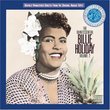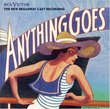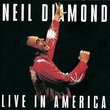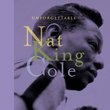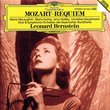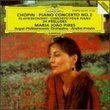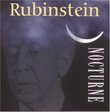| All Artists: Deutschen Oper Berlin Chorus, Walter Hagen-Groll, Herbert von Karajan, Walter Berry, Helga Dernesch, Jon Vickers, Christa Ludwig Title: Richard Wagner: Tristan und Isolde Members Wishing: 1 Total Copies: 0 Label: EMI Classics Release Date: 10/25/1990 Album Type: Box set Genre: Classical Styles: Opera & Classical Vocal, Historical Periods, Modern, 20th, & 21st Century Number of Discs: 4 SwapaCD Credits: 4 UPCs: 077776931920, 077776931951 |
Search - Deutschen Oper Berlin Chorus, Walter Hagen-Groll, Herbert von Karajan :: Richard Wagner: Tristan und Isolde
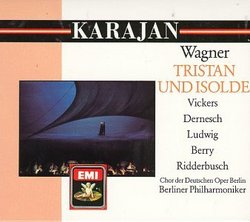 | Deutschen Oper Berlin Chorus, Walter Hagen-Groll, Herbert von Karajan Richard Wagner: Tristan und Isolde Genre: Classical
Depending upon how one feels about the conducting of Herbert von Karajan, this performance is either Karajan's poem to himself--all indulgence and smoothness and beauty and lushness for their own sakes, with turgid temp... more » |
Larger Image |
CD DetailsSynopsis
Amazon.com Depending upon how one feels about the conducting of Herbert von Karajan, this performance is either Karajan's poem to himself--all indulgence and smoothness and beauty and lushness for their own sakes, with turgid tempi to match--or a genuinely thought-provoking performance. It is undoubtedly beautiful, but in a museum-like way. Helga Dernesch might seem uncomfortable from start to finish as Isolde, but it would be hard to live without Jon Vickers's Tristan. The latter is so full of conflict, desire, loyalty, joy, and despair, with Vickers using every color in his vocal palette, that one can't help being touched--indeed, overwhelmed--by the performance. Ludwig and Berry are good, and Ridderbusch is fine as King Marke. The Berlin forces play rapturously. This recording, then, really is a matter of taste. --Robert Levine Similarly Requested CDs
|
CD ReviewsAt the top of the list of Tristan recordings cdsullivan@massed.net | Cambridge, MA USA | 12/28/2001 (5 out of 5 stars) "This is a rather controversial, love it or hate it recording. Admirers of Karajan will be thrilled at the gorgeous sound of the orchestra and the magnificent cast, easily the finest on disc, as well as Karajan's rapturous and sensitive direction. Detractors of Karajan will be as outraged as the admirers will be thrilled, because of the manipulated recording balances and a certain lack of spontaneity.Both are valid points. Certainly, the musical values of this Tristan rise above any other. To start off, the Berlin Philharmonic Orchestra is here on its unimaginably glorious form. It is balanced a bit more forward than usual, so it becomes a main character in the drama, as it should. Karajan's careful direction makes sure the orchestra never drowns the singers, so we get the best of both worlds. In the preludes and, especially, in the gorgeous Act II solo for Brangäne and the Act III Liebestod, the beauty of sound is so overwhelming that you just sit there and drink it up. It may not sound as spontaneous as other orchestras under other conductors, but the sound is just so glorious that you can't argue. Karajan's conducting has the same qualities as the orchestra. He takes superbly judged tempi, perhaps a little on the slow side, but they all sound exactly right. He is a master of balances, both within the orchestra and between the orchestra and the singers, so the entire work comes out sounding exactly as though Wagner must have intended it to - at least when the balance is not electronically altered (see below). Karajan is also somewhat more involved than usual, particularly in the closing scenes of the first and third acts. His conducting in this opera is up there with the greats, including Furtwängler (EMI, 1952).The cast, however, is the greatest strength of this recording. The Isolde of Helga Dernesch is absolutely magnificent. Her voice is somewhat dark, very beautiful and very warm, with a slight vibrato to give it flavor. The best quality of her voice, though, is its warm radiance. Here, she navigates the killer narration in Act I unfalteringly, culminating in some ringing high notes; she brings the greatest depth of emotion as well of beauty of tone to the Act II love duet; and her concluding Liebestod is sung so beautifully and expressively that it brings tears to your eyes. This performance of the Liebestod is the most intense I have ever heard; the climax at "In der Welt-Atems wehendem All" is absolutely shattering. Dernesch's voice occasionally falters under the relentless demands of Isolde, but for the most part she gets through it, with her beautiful voice unscathed. Her Isolde is on the same level as Nilsson's (Böhm) and Flagstad's (Furtwängler). I actually think she is better than Nilsson, because Dernesch brings a humanity and warmth to the role that surpasses the relatively cold, steely voice of Nilsson. Flagstad had the voice of the century, but she was 57 years old when she made the Furtwängler recording, so naturally she shows some signs of age. I would say Dernesch and the older Flagstad are on just about the same level. No one, however, matches Flagstad's performance in London under Beecham in 1937.Tristan is sung by Jon Vickers, one of the most intense singers ever. His Tristan is the most vividly portrayed ever. His madness in Act III is absolutely overwhelming: no one else is so wild, so enraged, so yearning, and when the ship is sighted, no one else is as joyful. His voice, though not the most beautiful, is just right for this killer role: large, penetrating, and powerful. He is the most complete Tristan ever, light years ahead of the likes of Kollo, Jerusalem, even surpassing Suthaus` moving portrayal for Furtwängler. His only rival in the role is Melchior. Melchior has a more beautiful, powerful voice, but his lack of intelligence and portrayal is annoying. I will hesitantly say that Vickers was the Tristan of the century.The supporting cast is fabulous: Christa Ludwig is magnificent as Brangäne; her only rival is her younger self for Böhm in 1966. Her rich, creamy mezzo is ideal for the role, and she is a worthy foil for the radiance of Dernesch. Walter Berry is in fine voice as Kurwenal. He is a somewhat more cynical, sarcastic Kurwenal than, for instance, the fanatically loyal Wächter for Böhm. His performance is well thought out and moving. Karl Ridderbusch, one of the most underrated Wagnerian singers, is a weighty, gloriously rich Marke.Now for the negatives. First of all, the actual sound quality is not all that great. I find it somewhat murky - so, despite Karajan's ear for balances, some of the detail gets lost. Much more aggravatingly, though, Karajan, or someone under his command, has been fiddling with the balances. The most annoying instance is the end of Act I, when the "distant" fanfares greeting the arrival of King Marke are blaring from about two feet away, while the chorus and orchestra are faded to the background. In the Act II love duet, there are frequent changes of perspective. I'm not sure where I read this, but it sticks in my mind that Karajan was planning this recording as the soundtrack for a film, and the changes in perspective reflect changes of perspective in the movie; i.e., in the film, I assume you would be viewing the ship arriving from the trumpeters' position on the dock. In the end, though, I think the musical strengths of this recording are so great that you can ignore the sound problems. This recording is at the top of my list of great Tristan recordings, and while other recordings, notably Böhm's, are safer bets, I'm not sure you want to play safe with this opera. Karajan captures the beauty and poetry of this work in a unique way." Tristan und Isolde - und Karajan! Lasse S°ager | Copenhagen, Denmark | 03/22/2000 (5 out of 5 stars) "In the recordings of Karajan conducting Wagner, I never fail to get a new and fresh insight into the music-drama. Karajan's conducting of Wagner is simply in a class of its own - not necesarilly better than the rest, but definitely always worth listening to.This recording is no exception. As "Tristan" is the epitomy of Wagner's art, so this recording seems to me to be the epitomy of Karajan conducting Wagner: the orchestral sound is focused and slim (for Wagner, that is!), every detail of the score observed. The singers aren't "larger-than-life Wagner-cannons" (Karajan's expression), focusing on pure tidal-waves of sound, but rather singers, acting with their voices: generally, the volume and impact of the voice is reduced in favour of beauty and expressive quality. Vickers (Tristan), for example, has an unsurpassable mezzo-voice, that is used fully under Karajan's attentive conducting. Dernesch (Isolde) is one of my favourite Wagner-sopranos, perhaps without the impact of Nilsson, but certainly with great beauty and expression.To my mind, the only singer less than satisfactory is Berry (Kurwenal), whose voice seems less suited to the role.A moment of particular beauty in this recording, which also serves to illustrate Karajan's attention to the details of the score, is the beginning of the duet between Tristan and Isolde in the beginning of act 2: The pair embrace ferwently in an orchestral hurricane of 'fortissimo' only to lower the sound to 'piano' immediately afterwards - a very challenging moment, which far from every conductor meets. It's imperative to the musical tension - and Karajan succeeds." A Study on the Decadence of Love and Death Unparalleled The Cultural Observer | 10/30/2005 (5 out of 5 stars) "Great works of art are able to encompass the totality of body, mind, and spirit. By necessity, art at its greatest is an abstract representation of human emotion and thought that translates to a medium of absolute and unparalleled wonder and beauty. One can think of this as a quasi-reality created by form and style that while considered impossible and decadent in the earthly dimension serves to create an idyllic view of reality where the entire scope of emotion and the intellect could not be better realized.
Unfortunately, much of the art today has been skewed and mangled by individuals who have no firm grasp on the aesthetic triune of the spirit, the mind, and the body, instead leaving art as a bodiless shell upon which the moribund essence of personality corrupts and takes the place of the aesthetic ideal. This is thereby the reason why opera is a dying art form. The aesthetics of emotion and art are no longer fulfilled in this ultimate medium of expression. What it has become instead is a violent reaction to politics, society, and the human condition devoid of that balance of beauty, of humanity, and of truth. The characters of this new breed of opera are no longer noble creations of the stage. They are vapid automatons expressing what is ultimately anachronistic, irrelevant, and petty. Whereas Mozart, Beethoven, Verdi, Monteverdi and Britten fulfilled these timeless ideals greatly and Wagner more so, only Richard Strauss and Alban Berg after them were able to realize the aesthetic standard that made opera such a bewitching art form. None of today's composers have that ideal carved into their grasp of art and music. Richard Wagner's Tristan und Isolde is in my opinion one of the last in a great line of operas that fulfilled the zenith of the aesthetic ideal (Parsifal would be another, but in a completely different sense). It is a study in death, love, passion, and humanity. Unlike grand opera, it finds its ability to powerfully impact the listener merely through the plights of two characters, both of who experience the dichotomous worlds of night and day, of love and death. Wagner erected a great monument to the human emotion that inadvertently drove audiences to madness. Tag und Nacht, Liebe und Tod...these were foreign concepts to a 19th century audience that found its absurd and bewildering that the nocturnal realm of death superseded the earthly plain of day in its ability to realize the ultimate passions of the soul. Great exponents of Wagner's Tristan und Isolde have been many. Gustav Mahler was one such conductor, and so were Wilhelm Furtwängler, Arturo Toscanini, Hans Knappertsbusch and Victor de Sabata. Decades later, only Carlos Kleiber and Daniel Barenboim would be able to carry the Wagnerian torch to inject life to this complex score. It was between these two great eras in conducting, however, that Wagner would find his ideal interpreter in a man who saw eye to eye with the composer in his understanding of the Grecian aesthetics--Herbert von Karajan. By aesthetics, I do not describe the Austrian maestro's partiality for gossamer orchestral sounds, nor do I describe them by a particular ilk of hedonism that his detractors have so erroneously ascribed to his art. Rather, I would describe it as Karajan's ability to see the score as a vast universe to which his genius and his baton can impregnate a sound world that envelopes the listener not only in beauty but also in tension and intensity--two things that are essential to the interpretive vision of this score. His liquid phrasing and his mastery of orchestral dynamics presents the opera in a more symphonic light that is perhaps more apt to the nature of the work. Compared with the stylistics of other conductors, Karajan creates a febrile, tense, harrowing, passionate, and unbridled vision of the Celtic lovers that entrances one while soothing the ear through his wall of symphonic beauty. The conductor's sense of line, breadth, and architecture are also assets that allow him to encompass the entirety of Tristan's four hours, creating not only memorable episodes of Wagner's music but also binding them together as a cohesive panorama of the composer's monument. His Act 1 is paced tensely and intensely, Act 2 sensually and gorgeously, and Act 3 frighteningly and rapturously. This Tristan truly is a study in the decadence of love and death. Exactly twenty years earlier, Karajan committed a live performance of his Tristan to disc. Back then, he was accompanied by the Bayreuth Festival Orchestra, a fine ensemble, but not nearly so as the glorious Berlin Philharmonic that so aptly recreates the sound world of Cornwall in this recording. The strings are sublime, the brass mellow yet present and autumnal, and the woodwinds forward and beautifully dovetailed. As a testament to Wagner's orchestra, few others serve his music better than von Karajan. It is also in this recording that Tristan finds its ultimate cast. Contrary to popular consensus, Helga Dernesch is a soprano whom I find to be unmatched in her ability to find a sense of character in Isolde. She is an intelligent artist, inflecting the words and syllables with the proper sense of color to express Isolde's myriad emotions. She is rightfully sarcastic, passionate, loving, angry, hurt and willful when need be. Dernesch's Act I is immediate and powerful, and her voluptuous singing in Act II is perfect. Her Act III is sympathetic, capped off by a transcendent Liebestod. Her voice is also one of the most beautiful instruments to touch the part, characterized by a voluptuous loveliness than even Kirsten Flagstad did not have. Where Flagstad was grand and regal, Dernesch was everything else that you could ask for in an Isolde--vulnerable, youthful, beautiful, and powerful. Her cleaving top notes are coupled to a warm, rich middle that is undergirded by a bottom that sings of gold. I find her Isolde essential as only Flagstad and Nilsson are essential. Jon Vickers has no peer as Tristan, not even the great Lauritz Melchior whom I find to be slightly disengaged in the part. Tristan is the cornerstone role in the dramatic tenor repertoire. It needs more than a mellifluous voice to carry out the kaleidoscopic breadth of the character's qualities. Perhaps the most appropriate way to describe Tristan is a cross between Hamlet and Otello. It is a role of Shakespearean proportions, massive in scale yet intimately realized and balanced by a great interpreter, of which Vickers was the greatest. His enormous yet gorgeous voice was the perfect vehicle for Tristan. No one in history has yet to top what is in my opinion the ultimate third act on records. The remainder of the cast is undertaken by masters of the stage like Christa Ludwig, sympathetic as Brangäne and unparalleled for the beauty and sensitivity of her singing. Her intonation is far more secure here than in the Böhm Tristan of 1966, and she is able to better delineate a better sense of character with Karajan. Kurwenal is Walter Berry, congenial, heroic, and brave. Only Wächter can be mentioned in the same sentence with him. Karl Ridderbuch is the King in this recording. His beautiful voice is tailored for the part, as is his sympathetic singing which gives life and meaning to one of the best recorded monologues along with Talvela and Pape. Melot, the Seaman, and the Shepherd are all in good hands in this recording, with Karajan leading the entire cast in one of the most powerful, narcotic and nocturnal readings of the opera ever immortalized on disc. Overall, this Tristan is Karajan's ode to Wagner's art, and how fortunate we are to have it documented with a cast of great distinction. " |

 Track Listings (10) - Disc #1
Track Listings (10) - Disc #1![Vivaldi's Ring of Mystery [With CD]](https://nationalbookswap.com/cd//m/30/0730/80730.jpg)
